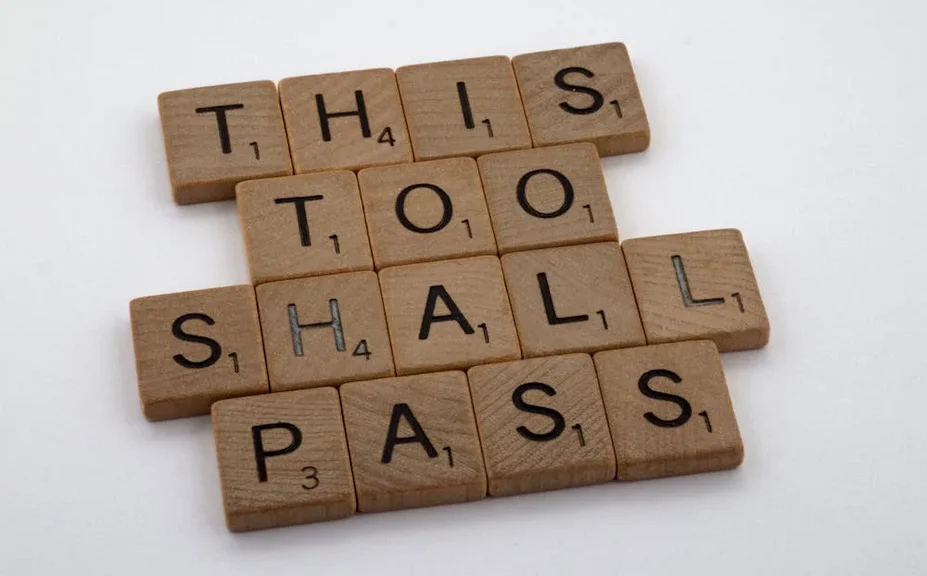Remember all those sayings and bits of wisdom that seemed so annoying when we were kids? Turns out, some of that advice from parents, grandparents, and teachers contained genuine pearls of wisdom that have stood the test of time. While we may have rolled our eyes back then, many of us find ourselves repeating these same phrases to younger generations today. Here’s a collection of advice that, in retrospect, was actually pretty spot-on.
1. “If You Don’t Have Anything Nice to Say, Don’t Say Anything at All”

This timeless advice from countless mothers and grandmothers seems simple on the surface but carries profound wisdom about human interaction. Learning to hold your tongue when you’re feeling critical or judgmental prevents unnecessary hurt and preserves relationships that might otherwise be damaged by thoughtless comments. The discipline required to pause before speaking critically has saved many of us from regrettable moments we can’t take back. Assertive Way goes into the pros and cons of this saying, noting that it’s important not to be quiet to the point of passivity.
As adults navigating complex social and professional environments, this advice becomes even more valuable when conflicts arise. Those who mastered this skill early tend to have stronger interpersonal relationships and fewer instances of foot-in-mouth disease. In today’s world of instant communication and permanent digital footprints, the wisdom of sometimes choosing silence over speaking has never been more relevant.
2. “Eat Your Vegetables Before Dessert”

The vegetables-first rule wasn’t just about making sure we consumed nutritious food before indulging in sweets—it was teaching us the fundamental life principle of delayed gratification. This simple dinner table rule helped instill the concept that some less pleasant tasks need to be completed before enjoying rewards. Research consistently shows that the ability to delay gratification is strongly correlated with better outcomes in education, health, and financial stability. The Nutrition Source takes a bite into the many important benefits of eating vegetables in general, and especially before dessert.
The metaphorical “vegetables” in adult life might be saving before spending, completing difficult work tasks before easier ones, or handling responsibilities before leisure. Those of us who internalized this concept find it easier to tackle challenging projects head-on rather than procrastinating. What seemed like just a mealtime power struggle was actually preparation for a lifetime of making choices that prioritize long-term benefits over immediate pleasure.
3. “Don’t Put All Your Eggs in One Basket”

This advice about diversification and risk management often came from depression-era grandparents who learned its truth the hard way. The metaphor perfectly captures the danger of investing all your resources, whether emotional, financial, or otherwise, into a single opportunity or relationship. Having multiple sources of support, income, or fulfillment provides crucial stability when inevitable setbacks occur. Interestingly, National Heritage Board traces the origins of this quote back hundreds upon hundreds of years ago.
As we navigate career changes, investment decisions, and personal relationships, this principle remains remarkably sound. Those who develop multiple skills, maintain diverse social networks, and spread out their investments tend to weather life’s storms more successfully. What seemed like overly cautious advice from an older generation has proven to be sophisticated risk management applicable to nearly every area of life.
4. “A Stitch in Time Saves Nine”

This old-fashioned saying about the value of addressing small problems before they become large ones contains profound wisdom about maintenance and prevention. Taking care of minor issues—whether a small tear in clothing, a misunderstanding in a relationship, or a minor health concern—prevents them from developing into major catastrophes requiring much more effort to repair. The principle applies universally across personal health, home maintenance, financial planning, and relationships.
The small effort required to handle problems early often meets resistance from our tendency toward procrastination and avoidance. Those who internalized this advice find themselves saving time, money, and heartache by addressing concerns promptly rather than waiting until they become emergencies. What seemed like nagging about minor details was actually teaching us the value of preventative maintenance in all areas of life.
5. “You Catch More Flies With Honey Than With Vinegar”

This colorful expression about the effectiveness of kindness over harshness provides a practical framework for persuasion and influence. Learning that being pleasant, respectful, and polite generally yields better results than being demanding or aggressive is a lesson with lifelong applications. In everything from customer service interactions to workplace collaborations, the approach we take significantly impacts the cooperation we receive.
The wisdom extends beyond simple politeness to understanding fundamental human psychology—people generally respond better when they feel respected and valued rather than criticized or attacked. Those who mastered this concept early tend to navigate conflict more successfully and achieve their goals with less resistance. What seemed like advice about basic manners was actually sophisticated guidance on human influence and relationship management.
6. “Mind Your Own Business”

This blunt advice, often delivered when we were being nosy about others’ affairs, contains surprising wisdom about boundaries and focusing on what we can control. Learning to concentrate on your own life rather than inserting yourself into others’ dramas saves tremendous emotional energy and prevents unnecessary complications. The habit of respecting others’ privacy while managing your own responsibilities creates a more peaceful existence.
As adults, this principle helps us avoid the pitfalls of comparison, gossip, and inappropriate involvement in situations where our input isn’t needed or wanted. Those who practice minding their own business tend to experience less stress and have more mental space for personal growth and accomplishment. What seemed like a dismissive response to childhood curiosity was actually teaching us important lessons about boundaries and personal focus.
7. “Don’t Burn Your Bridges”

The warning against severing relationships or leaving situations in a way that prevents future reconciliation demonstrates remarkable foresight about life’s interconnectedness. Professional industries, social circles, and even family networks are often smaller than they initially appear, making it likely that our paths will cross again with people we’ve encountered before. Maintaining dignity and respect even in difficult partings preserves options that we might need later.
The wisdom becomes increasingly apparent as we navigate career changes, relocations, and evolving social circles where past connections frequently resurface. Those who leave situations gracefully often find doors reopening unexpectedly years later, while burned bridges remain permanently closed. What seemed like cautious advice about hypothetical futures was actually practical guidance about networking and relationship management in our interconnected world.
8. “Save for a Rainy Day”

This simple financial advice about setting aside resources for future needs contains profound wisdom about planning and security. Establishing the habit of not consuming everything immediately creates a buffer against unexpected expenses, emergencies, and opportunities that require capital. The metaphorical “rainy day” is an inevitability in life, making preparation a necessity rather than an option.
The psychological comfort of having emergency resources extends beyond the practical benefits, reducing stress and allowing for greater risk-taking in other areas. Those who developed saving habits early enjoy more freedom and fewer crises when unexpected expenses arise. What seemed like killjoy advice about denying immediate pleasures was actually sophisticated financial planning that creates greater long-term security and opportunity.
9. “Don’t Judge a Book By Its Cover”

This advice about looking beyond superficial appearances encourages deeper evaluation and critical thinking about people and situations. Learning to suspend immediate judgment based on outward characteristics helps us discover value in unexpected places and avoid missing opportunities due to bias or prejudice. The principle applies to people, experiences, books, movies, and countless other areas where first impressions might be misleading.
The wisdom becomes increasingly valuable in a diverse world where cross-cultural interactions and unexpected innovations require openness to what initially seems unfamiliar. Those who practice looking beyond surfaces often discover treasured friendships, enlightening perspectives, and enjoyable experiences they might otherwise have missed. What seemed like a simple platitude was actually teaching us to combat our brain’s natural tendency toward snap judgments and stereotyping.
10. “If a Job’s Worth Doing, It’s Worth Doing Well”

This no-nonsense advice about quality and effort encourages a mindset of excellence rather than mere completion. Learning to take pride in your work, regardless of whether the task is glamorous or mundane, develops discipline and character that extend far beyond the immediate situation. The habit of thoroughness and attention to detail becomes a competitive advantage in every area of life.
The principle becomes particularly valuable in professional contexts where the quality of work directly impacts reputation and opportunity. Those who approach tasks with thoroughness tend to advance more quickly and receive more responsibilities than those who do just enough to get by. What seemed like unnecessarily high standards for childhood chores was actually preparation for a world where excellence stands out and mediocrity blends in.
11. “The Early Bird Gets the Worm”

This simple metaphor about the advantages of promptness contains practical wisdom about positioning yourself for success. Developing the habit of arriving early, starting projects ahead of schedule, and being first to recognize opportunities provides a consistent edge in nearly every area of life. The margin created by being ahead rather than behind schedule reduces stress and allows for more thoughtful decision-making.
The benefits extend beyond specific situations to establishing a reputation for reliability that opens doors professionally and personally. Those who internalized this principle find themselves with more options and less chaos than those who habitually run late or procrastinate. What seemed like annoying morning cheerfulness was actually practical advice about creating advantages through timing and preparation.
12. “You Can’t Please Everyone”

This realistic assessment of human diversity and the impossibility of universal approval provides crucial perspective for those seeking to make an impact. Accepting that some people simply won’t appreciate your choices, work, or personality frees you from the exhausting and ultimately futile pursuit of universal approval. The liberation that comes with this realization allows for more authentic expression and focused effort.
The wisdom becomes particularly valuable when making difficult decisions or creating something innovative that challenges conventions. Those who understand that criticism is inevitable for any meaningful work are better equipped to handle feedback constructively rather than being paralyzed by it. What seemed like permission to ignore others’ feelings was actually sophisticated guidance about navigating a world of diverse and sometimes conflicting expectations.
13. “Better Safe Than Sorry”

This cautionary advice about prevention and precaution acknowledges that the inconvenience of safety measures is almost always less costly than dealing with preventable problems. Taking reasonable precautions—whether wearing a seatbelt, having insurance, using sunscreen, or backing up data—creates protection against risks that might otherwise cause significant harm. The small effort of prevention typically requires far fewer resources than recovery from disaster.
The wisdom applies broadly across health, safety, financial planning, and even emotional well-being where protective boundaries prevent unnecessary damage. Those who develop prudent habits of precaution tend to experience fewer catastrophes and more stability throughout life. What seemed like overprotective worrying was actually pragmatic risk management that acknowledges the high cost of certain negative outcomes.
14. “This Too Shall Pass”

This philosophical reminder of the temporary nature of both difficulties and pleasures provides crucial perspective during emotional extremes. Understanding that pain, embarrassment, failure, and disappointment will eventually fade helps us endure challenging periods without becoming overwhelmed by them. Equally important is the awareness that moments of triumph and joy are also transient, encouraging us to appreciate them fully while they last.
The wisdom of this perspective deepens with age and experience as we witness firsthand the changing nature of circumstances that once seemed permanent. Those who internalize this truth develop resilience during hardship and gratitude during prosperity, qualities that contribute to emotional well-being. What seemed like dismissive minimization of current feelings was actually profound philosophical wisdom about the nature of time and human experience.
These pieces of advice have endured not because they were delivered with perfect timing or eloquence, but because they contain fundamental truths about human nature and effective living. While we may have initially resisted them, many of us find ourselves grateful for this inherited wisdom as we navigate adult challenges. Perhaps the most humbling realization is finding ourselves repeating these same phrases to younger generations, completing the cycle of wisdom passed from one generation to the next.


